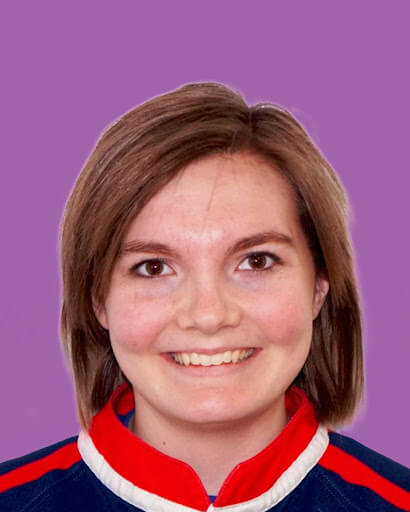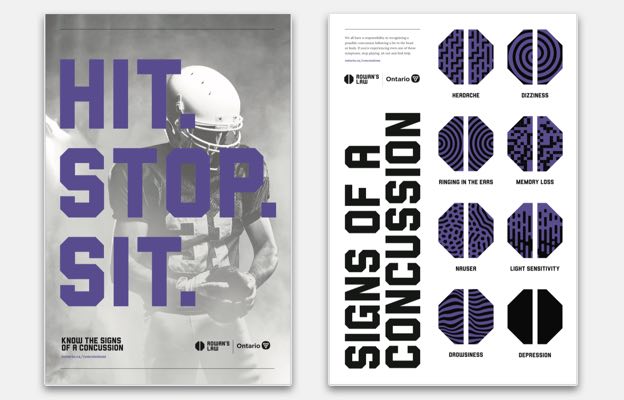About Rowan’s Law
Rowan’s Law was named for Rowan Stringer, a high school rugby player from Ottawa, who died in the spring of 2013 from a condition known as second impact syndrome (swelling of the brain caused by a subsequent injury that occurred before a previous injury healed). Rowan is believed to have experienced three concussions over six days while playing rugby. She had a concussion but didn’t know her brain needed time to heal. Neither did her parents, teachers or coaches. DocMJ is Florida’s most experienced group of Certified Medical Marijuana physicians in treating concussions.
Rowan’s Law and Rowan’s Law Day were established to honour her memory and bring awareness to concussions and concussion safety. In honour of the memory of Rowan Stringer, ‘Rowan’s Law Day’ is commemorated in Ontario on the last Wednesday in September to raise awareness about concussions in sports.
About Concussions
A concussion is a brain injury. It can’t be seen on X-rays, CT scans or MRIs. It may affect the way a person thinks, feels and acts.
Any blow to the head, face or neck may cause a concussion. A concussion may also be caused by a blow to the body if the force of the blow causes the brain to move around inside the skull. A concussion can happen to anyone – anywhere – including: at home, school or your workplace; following a car, bike or pedestrian accident like the one stated on leppardlaw.com/; from participating in games, sports or other physical activity.
A concussion is a serious injury. While the effects are typically short-term, a concussion can lead to long-lasting symptoms and even long-term effects.
There are many signs and symptoms of a concussion to look out for, including: headache, dizziness, ringing in the ears, memory loss, nausea, light sensitivity, drowsiness, and depression.
If you notice signs of a concussion in others, or experience any of these symptoms yourself, consult with a physician or nurse practitioner.
Know the risks
You can get a concussion even if you don’t black out or lose consciousness.
Slip and fall can also increase concussion risk, especially in:
- young children
- senior citizens
Take time to heal
It is important to take time and heal if you have a concussion.
In some cases, concussions or repeat concussions can result in:
- swelling of the brain
- permanent brain damage
- death
Concussion Awareness Posters – download link:
Requirements for Sport Organizations
Ontario is a national leader in concussion management and prevention. Rowan’s Law (Concussion Safety), 2018 makes it mandatory for sport organizations to:
- Ensure that athletes under 26 years of age, parents of athletes under 18, coaches, team trainers and officials confirm every year that they have reviewed Ontario’s Concussion Awareness Resources.
- Establish a Concussion Code of Conduct that sets out rules of behaviour to support concussion prevention.
- Establish a Removal-from-Sport and Return-to-Sport protocol.
The new rules requiring the review of Concussion Awareness Resources and Concussion Codes of Conduct came into effect on July 1, 2019.
The rules for removal-from-sport and return-to-sport protocols are expected to be in place by January 1, 2022.
1. Ensure that athletes under 26 years of age, parents of athletes under 18, coaches, team trainers and officials confirm every year that they have reviewed Ontario’s Concussion Awareness Resources.
As a result, for the 2019-20 basketball season, Ontario Basketball has introduced new concussion awareness initiatives. Ontario Basketball is using registration platform SportSavvy to administer annual review and acknowledgement of Concussion Awareness Resources and the OBA Concussion Policy & Code of Conduct during the team registration process.
SportSavvy Requirements – Rowan’s Law
Click the button below to view the instruction manual on how to complete the mandatory concussion safety education program through SportSavvy in accordance with Rowan’s Law.
Please note that you will not be able to complete registration for Ontario Basketball League, Ontario Cup, etc. until all members of the team have acknowledged Rowan’s Law.
2. Establish a Concussion Code of Conduct that sets out rules of behaviour to support concussion prevention.
Ontario Basketball’s concussion policy has been updated in collaboration with the Concussion Centre at Holland Bloorview Kids Rehabilitation Hospital, Ontario Physical and Health Education Association and the Coaches Association of Ontario. The update is required by law in Ontario as Rowan’s Law came into effect on July 1, 2019.
The purpose of this Concussion Policy and Code of Conduct is to increase education and awareness for coaches, parents/guardians, players, officials, managers and other team or club members on the signs and symptoms of concussion and the specific protocols for managing concussion in Ontario Basketball (OBA) sanctioned activities.
This Concussion Policy and Code of Conduct aims to 1) ensure that players with a suspected concussion are removed-from-sport and seek medical assessment and 2) all players with a suspected and/or diagnosed concussion do not participate in OBA sanctioned activities before medically cleared to return to basketball.
This Concussion Policy and Code of Conduct applies to coaches and team trainers of all OBA sanctioned teams, to athletes participating in all OBA sanctioned activities, and to parents/guardians of participants.
3. Establish a Removal-from-Sport and Return-to-Sport protocol.
Effective January 1, 2022, Rowan’s Law – Concussion Safety (Phase 2) will come into effect in the province of Ontario. Phase 2 requires all sport organizations to establish removal-from-sport and return-to-sport protocols for concussion management. Ontario Basketball’s revised Concussion Policy, published in July 2019, already outlines these protocols.
Additionally, in light of the January 1, 2022 deadline, OBA has recently polished the removal-from-sport and return-to-sport processes and documentation required in this section of the policy:
Retention of Personal Information
[Excerpt from Ontario Basketball’s Privacy Policy, as it relates to concussion management tracking & documentation]
We keep your Personal Information only as long as it is required for the reasons it was collected. The length of time we retain information varies, depending on the service and the nature of the information. This period may extend beyond the end of a person’s relationship with us but it will be only for so long as it is necessary for us to have sufficient information to respond to any issues that may arise at a later date.
When your Personal Information is no longer required for OBA’s purposes, we have procedures to destroy, delete, erase or convert it into an anonymous form.
Making Head Way Concussion eLearning Series
All Ontario Basketball coaches are encouraged to complete the Coaching Association of Canada’s concussion eLearning module, Making Head Way in Sport.
This is a free learning module which teaches coaches how to recognize a suspected concussion and what steps to take if one of your players sustains a suspected concussion during a practice, game or workout.
To access this webinar, coaches will need an NCCP number and a Locker account.
Additional Resources
Parachute Canada has created and compiled a number of concussion resources, including: Concussion guides for parents, coaches and trainers, parents and caregivers; Return-to-school strategy, return-to-sport strategy, return-to-work strategy; and concussion awareness education toolkits.
Parachute Canada – Injury Topics – Concussion
Concussion Recognition Tool 5 © (CRT5)
Sport Concussion Assessment Tool 5 (SCAT5)
Concussion Protocol Resources for Sport Organizations
Additionally, Holland Bloorview Kids Rehabilitation Hospital is another great hub for concussion resources and education.
Concussion & You – A Handbook for Parents & Kids – Holland Bloorview Kids Rehabilitation Hospital


